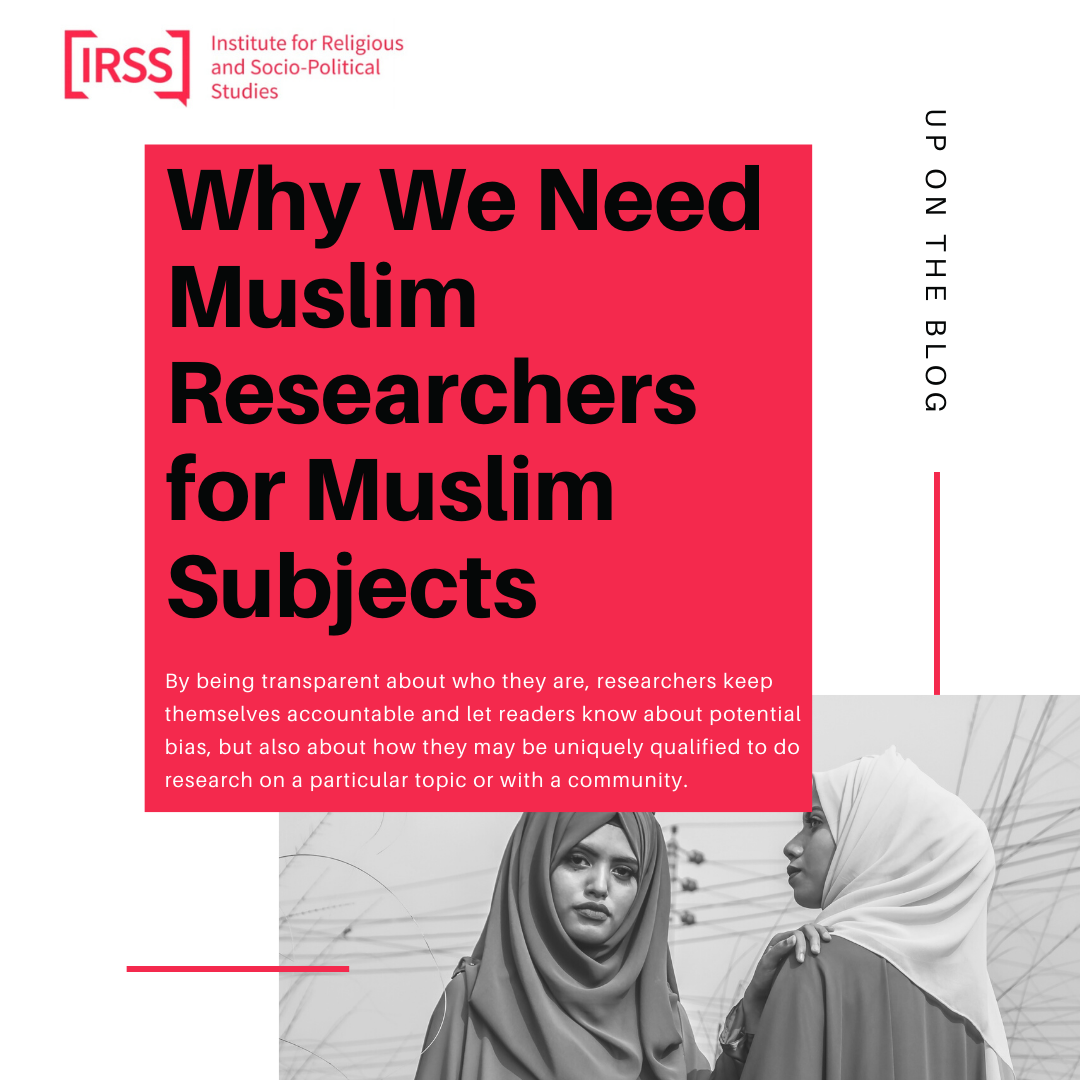
Why We Need Muslim Researchers for Muslim Subjects
- Post by: irss
- May 4, 2022
- No Comment
“We cannot fight for our rights, our history as well as our future until we are armed with weapons of criticism and dedicated consciousness.” (Edward Said)
“Agency has become a catch word. In a way, this intoxication with ‘agency’ is the product of liberal individualism. The ability of individuals to fashion themselves, to change their lives, is given ideological priority over the relation within which they themselves are actually formed, situated, and sustained.” (Talal Asad)
An often overlooked but important aspect of research is the identity of the researcher themselves. Who you are impacts how you understand the world, how you relate to others, and how others relate to you. Researchers strive to be objective, but our values, biases, and assumptions inevitably filter into our work through our interpretation, analysis, and even how we gather data. In qualitative and mixed methods research, it is increasingly common for researchers to state their “positionality,” or how they relate to their subject. By being transparent about who they are, researchers keep themselves accountable and let readers know about potential bias, but also about how they may be uniquely qualified to do research on a particular topic or with a community.
Research by Muslims benefits from “insider” advantages. Insider researchers share an identity with their study participants and can often access deeper, more nuanced insights as a result. They typically have higher contextualized understandings of their study area. They have a shared understanding of cultural terms, concepts, values and practices so interview participants don’t have to “translate” their ideas to the researcher and there is less likelihood of misinterpretation. There is also a higher baseline level of trust between researcher and participants due to shared experiences. People are more likely to agree to participate in a study with a researcher they trust, and will often be more open in their responses. Insider researchers are also more likely to feel a sense of accountability and responsibility to the community they are doing research with. This accountability supports trust, ethical conduct, and drives research that is truly relevant and serves the communities it engages with.
Both “insider” and “outsider” perspectives have unique advantages and disadvantages in research. An outsider perspective can sometimes pick up patterns or make connections that might be missed by a researcher who is more embedded in their subject. In many cases, researchers are both insiders and outsiders; sharing some aspects of their participants’ identities and not others. For example, a woman researcher may find that women participants are more open with her than men. Likewise a Black Muslim researcher and Arab Muslim interviewee will share a frame of reference around their shared religion, but may have a different cultural frame of reference. What is important is that the researcher is reflexive and self-aware about their position and how it impacts their research. However, insider perspectives are especially important in the context of a long legacy of orientalist, male, Euro-centric research on “others.” Such perspectives – usually without any reflexivity – have shaped academic and popular understanding and public policy in many areas for a long time and there is a great need to rectify that imbalance.
At I-RSS, we often (though not exclusively) produce and support research by Muslim researchers. Much of the existing literature looks at Muslims from a non-Muslim perspective – often with a lot of bias, assumptions, and even overt Islamophobia. This research is also not necessarily relevant or useful to Muslim communities themselves. For example, it may focus on how non-Muslim organizations can engage with Muslim clients but doesn’t necessarily provide the information a Muslim social service organization needs to develop a policy serving their own community. Research from Muslim perspectives is needed to challenge biases, support the needs of Muslim communities, and improve the quality of research on Muslims in general.
